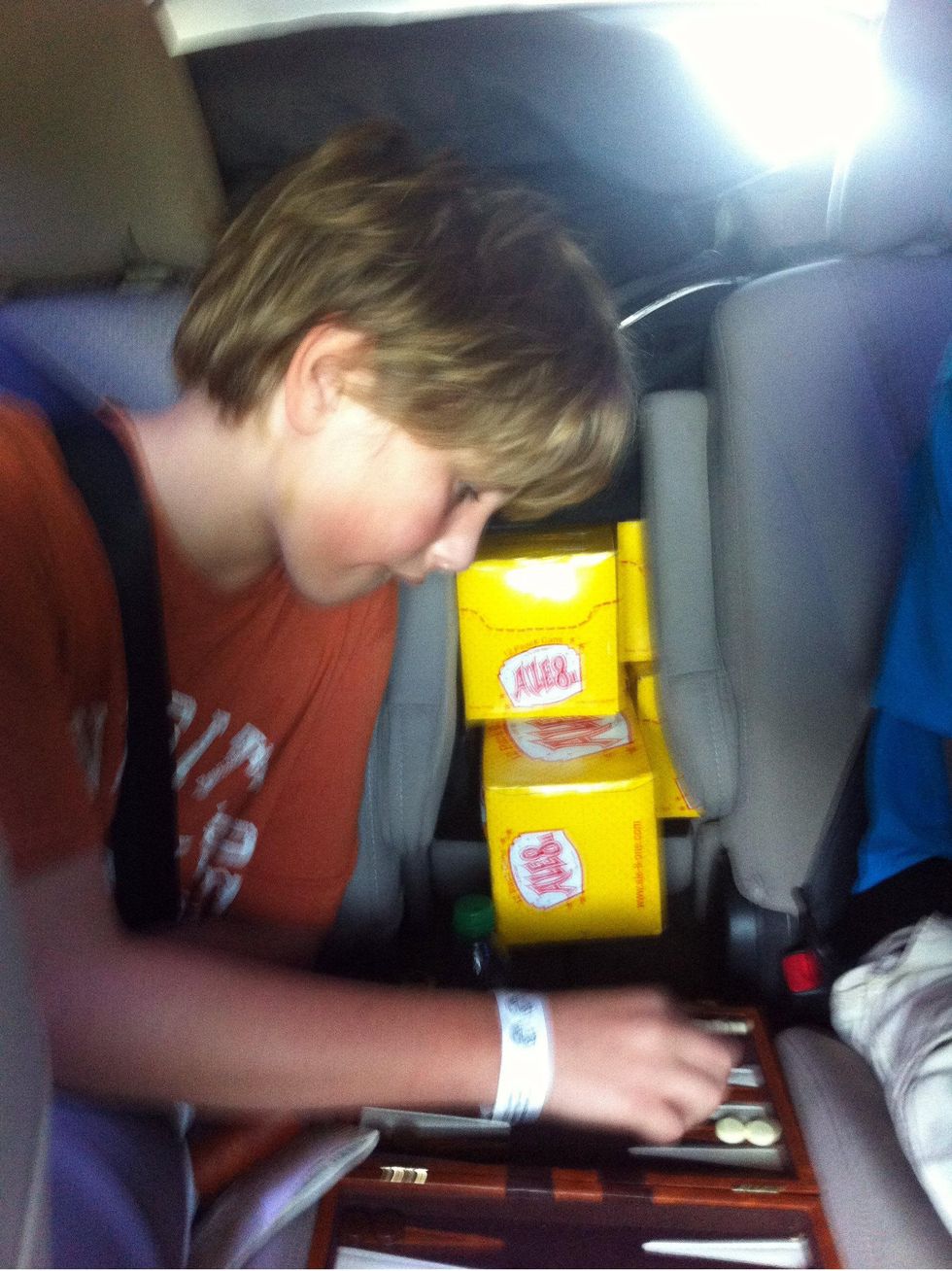92 Days of Summer
Technology taking over your summer? Make the kids ditch the screens and embrace boredom
When I was growing up in Waxahachie, summer days were long.
Sure, there were some watching-the-clock moments, filled with Gilligan’s Island and reruns of the Dick Van Dyke Show. But generally these sweltering, seemingly endless days consisted of bike rides to the pool, climbing around a nearby creek, listening to my parents’ 45s, reading, and writing in my lamely locked journal. One day, my fascination with sharks led me to make one out of paper sacks. This 4-foot creation, as I remember it, hung from the ceiling in my room.
I wasn’t an adventurer, a budding musician or marine biologist. I was bored.
Screens suck all the boredom out of summer. No mind is allowed to wander or wonder. No paragraphs of prose to get lost in.
During my August birthday slumber parties, we dreamed up elaborate dance routines. (Growing up with the Donny and Marie Show, Soul Train, and the Sonny & Cher Show has its advantages.) We froze each other’s bras and sprayed whipped cream on those who fell asleep first. We giggled about boys until the wee hours of the morning and told secrets that bonded us in adolescent angst and adoration (at least through the next few years).
We filled the hours by interacting with each other. Because what else was there to do?
Now, I must admit, I did spend some quality time with the Mattel hand-held electronic football game that came out in 1977, the year I turned 10. Its cool red dashes were captivating.
Fast-forward three and a half decades. My teen sons play games as realistic as any movie they might see — with them in control of the action. If left to his own devices, my 13-year-old would wake up every morning and watch TV until he was alert enough to play our Xbox or Wii. He would simultaneously text friends on his phone and watch videos or look up football stats on his iPod.
Now, if you offer him something else to do — go to the pool, explore in a creek, bake cookies, or roller skate — he’ll jump on it. In my opinion, he and his older brother aren’t addicted to video games (although research shows they are addictive). They’re averse to boredom.
And screens are gateway drugs to sweep our kids far, far away from boredom.
Let me quickly say that yes, I can see the irony in the amount of electronics available in our house when I am clearly feeling bullied by them. The boys got phones and iPods when they turned 12, a Wii when they were nine and 12, and an Xbox when they were 12 and 15. We argue about M games (rated for kids 17 and above) at least weekly, which is how often it seems to come up in social situations with friends.
Because I’d cut them off from screens, my kids were highly entertained by a board game. They pushed through the boredom and found something to do. And interaction with a human is always more fun.
Never a dull moment, from a parent’s perspective. Or, apparently, a teen’s.
“Screens” — as I lump them all together when I rage against or limit them in our house — suck all the boredom out of summer. No mind is allowed to wander or wonder. No paragraphs of prose to get lost in. No paper sacks otherwise envisioned.
Many sleepovers (boys don’t have slumber parties, my husband informed me when our kids were old enough to do so) consist primarily of video games, many rated M. The negotiations start from the moment of the invite, creating socially awkward conversations for everyone involved.
I’m good with words, but saying, “I don’t allow my son to watch M games,” without sounding like, “You’re a bad parent for letting your son watch M games,” is a minefield.
All that said, we could go all Amish on them and get rid of it all. And we’ve threatened to, especially with that damned Xbox. We don’t because we, too, are indulgent, middle-class American parents who want our kids to be happy and not socially ostracized, which kids without video games — at least in our circles — are.
Because we are not willing to pull the plug, we set rules, we argue, we set more rules, we field more arguments. We —and although my husband is incredibly helpful, “we” turns to “me” during most of these long summer days — entertain and distract.
When my husband came home one night this week to hyper kids who had been on the Xbox too long because I had a two-hour meeting and had to take my mom to a doctor’s appointment, he threatened to take away the electronic crack for the next week. With a smile, I threatened to drop them off at his office for the two hours of screen time they (when I’m focused enough to watch the clock) get every day.
It isn’t always this way. On a recent road trip, the boys re-learned how to play a traveling backgammon game we bought at a garage sale. My 13-year-old pulled up a video on YouTube while my 16-year-old tried to remember what my dad had taught him several years ago. They eventually figured it out and played for several hours.
Because they were bored. Because I’d cut them off from screens (although I did allow the situational YouTube exception). They giggled and were highly entertained by a board game that dates back thousands of years. Because they pushed through the boredom and found something to do. Because interaction with a human is always more fun. More work, yes, but always more fun.
Yes, I could’ve witnessed the same scene if they’d been playing the Xbox. But kids don’t lose hours on a summer day to backgammon. They enjoy hours on a summer day to backgammon, books, ping-pong, a book, or over a mixing bowl of cookie dough.
The eyes of backgammon players don’t glaze over. Parents don’t have to have discussions about the level of violence in backgammon games, and kids don’t have to be embarrassed — or break their parents’ rules — because they aren’t allowed to join in at a friend’s house. Backgammon doesn’t make kids hyper or disappear, and you can’t play it by yourself.
A summer of screen time is a summer glazing over the hours of delicious boredom in the haze of technology. It’s easy, for me and for them.
This is their generation’s reality. A 2010 study by the Kaiser Family Foundation shows American teenagers spend nine hours on screens each day, texting, playing games, watching TV, etc. It is my reality. I want to reach for my phone every time I stop at a red light. I’m not proud.
But, at least for now, I am in control. And I think maybe, now that I see our current system is not working halfway through the summer, we’ll institute No Screen Tuesdays or Fridays. Or maybe both. Because summer hours should be lingering, boring, and involve more humans and fewer controllers.
I am not above locking them outside, as I did when I needed a quiet moment when they were younger. Maybe I’ll even toss them a few paper sacks.


